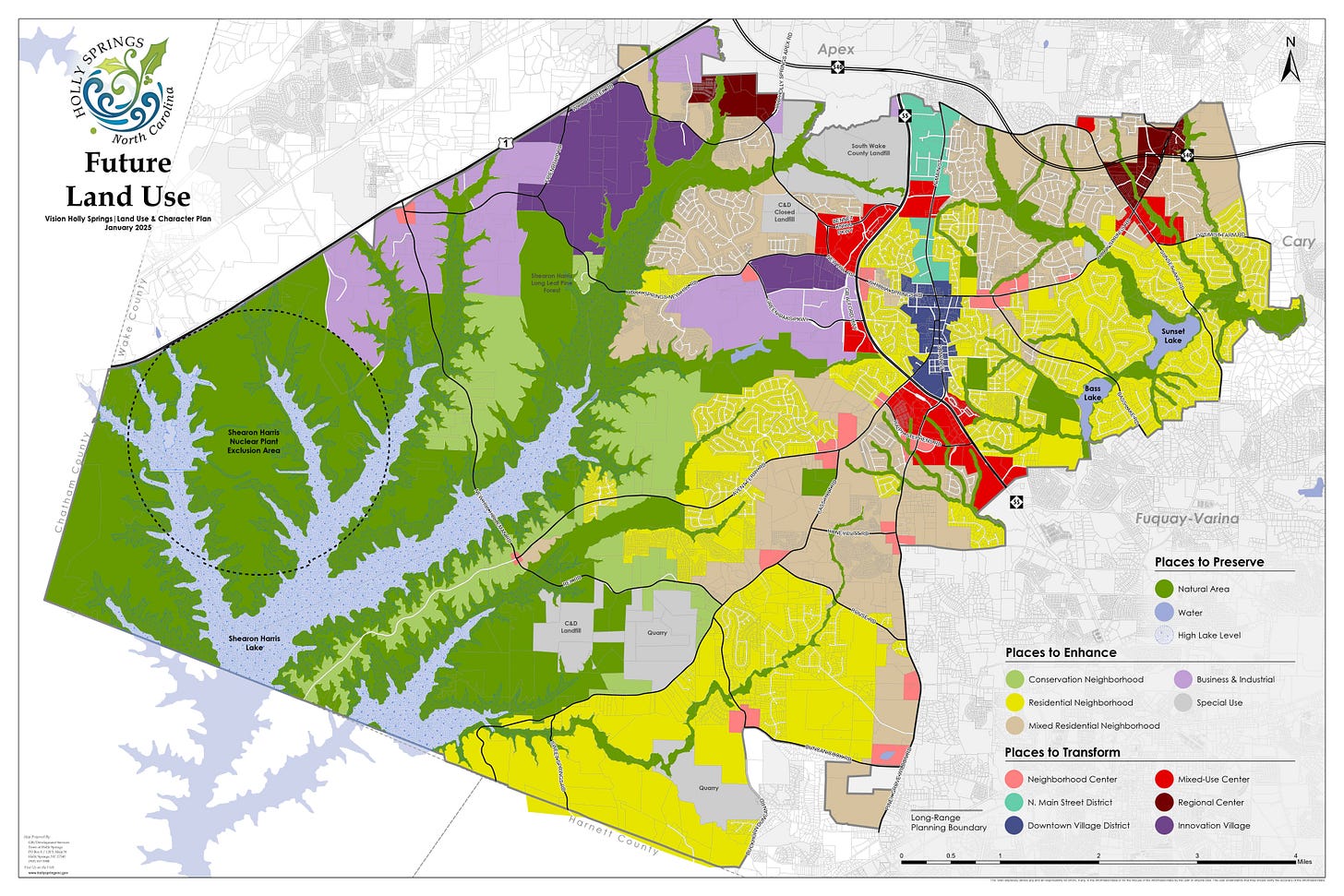Apex Supports State Bill Protecting Property Rights; Other Wake County Towns Quiet So Far
Proposed law strengthens property rights by protecting lawful, existing land uses from being disrupted by future zoning changes.
Holly Springs, NC, May 31, 2025 — Apex has become one of the first municipalities in Wake County to formally endorse Senate Bill 587 (Bill), a proposed North Carolina law that would strengthen property rights by protecting lawful, existing land uses from being disrupted by future zoning changes. The bill, titled "Clarify Nonconforming Uses," passed its second reading in the General Assembly and has drawn attention from local governments, property owners, and development professionals across the state.
What Senate Bill 587 Would Do
Senate Bill 587 seeks to safeguard what are known as “nonconformities” — properties that were legally developed under prior rules but no longer conform to new zoning regulations. If passed, the bill would:
Explicitly define nonconforming uses, structures, and lots in state law.
Require written consent from property owners before new land development rules can be enforced on these legally established nonconformities.
Prevent municipalities from altering, delaying, or diminishing vested rights unless mandated by state or federal law.
Protect the right to maintain or repair nonconforming structures, as long as they are not expanded or intensified.
Allow nonconforming rights to continue indefinitely unless voluntarily discontinued for 24 consecutive months.
Example: A homeowner in a fast-growing town may have built a detached garage in 1998 under zoning rules in place at the time. In 2024, the town changes its ordinances to prohibit detached structures of that size in residential neighborhoods. Under current law, the town might force the homeowner to tear it down or deny permits for routine repairs. SB 587 would protect that homeowner by ensuring their previously legal garage can stay — and be repaired — without interference, unless they abandon its use for two full years.
In essence, S587 would insulate longstanding homeowners and businesses from being forced to modify or cease operations simply because zoning rules changed after they established their property use.
Apex Endorses the Bill
At a recent meeting, the Apex Town Council passed a formal Resolution (document) of support for SB 587. In discussions preceding the vote, town officials framed their decision as a stand for consistency, fairness, and protection for residents who made decisions based on prior zoning laws. Apex officials emphasized that property owners should not be penalized retroactively for rules that didn’t exist when their homes or businesses were built.
Apex’s support highlights how fast-growing communities, where zoning updates are common, are seeking ways to balance development goals with property rights.
Holly Springs and Fuquay-Varina Have Not Weighed In
As of this writing, neither the Holly Springs nor the Fuquay-Varina town councils have publicly discussed or voted on a resolution concerning SB 587. Both towns, also experiencing rapid growth, could eventually face similar debates about how best to handle zoning changes and longstanding property uses. Whether they will join Apex in endorsing the legislation remains to be seen.
Other Municipalities and Broader Trends
Beyond Apex, no other specific North Carolina town or city is publicly known to have passed a formal resolution in support of the bill; however, the principles behind SB 587 mirror legislative trends in other states.
For example:
Florida has enacted strong protections for nonconforming uses under its Bert J. Harris, Jr. Private Property Rights Protection Act. [Statute text]
Texas law limits municipalities' ability to retroactively regulate previously permitted land uses. [Statute text]
Arizona enforces strict standards on vested property rights, ensuring development rights are honored once granted. [Statute text]
These examples suggest SB 587 fits into a national pattern of states moving to clarify or enhance property rights in response to changing land-use landscapes.
SB 587 is a state-level effort to reinforce the rights of property owners when zoning rules change after the fact. Apex has endorsed the legislation as a matter of fairness and predictability for residents. Holly Springs and Fuquay-Varina have not yet spoken on the issue, leaving open the possibility for future debate. As North Carolina continues to grow, laws like SB 587 could shape how towns manage development while honoring past commitments to landowners.
💭What do you think about Senate Bill 587? Is it a positive or negative step for property owners in North Carolina? Share your thoughts in the comments section below.

